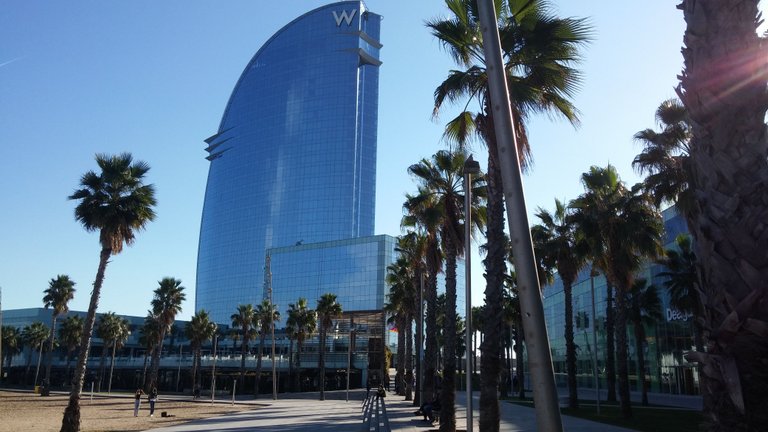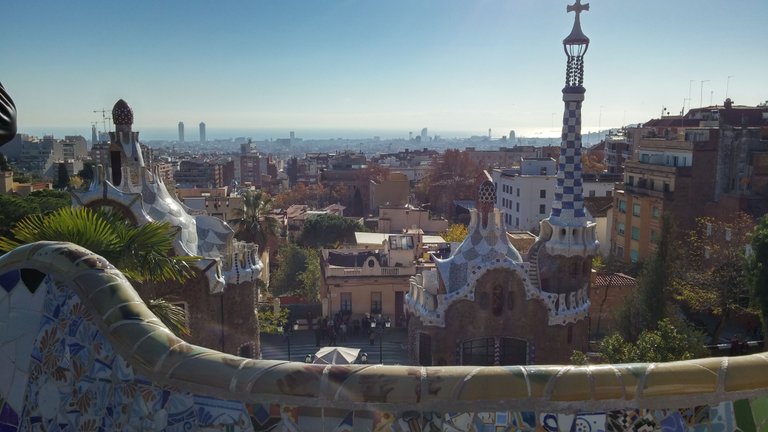
Barcelona is the capital city of the autonomous community of Catalonia in the Kingdom of Spain, as well as the country's second most populous municipality, with a population of 1.6 million within city limits. Its urban area extends beyond the administrative city limits with a population of around 4.7 million people, being the sixth-most populous urban area in the European Union after Paris, London, Madrid, the Ruhr area and Milan.
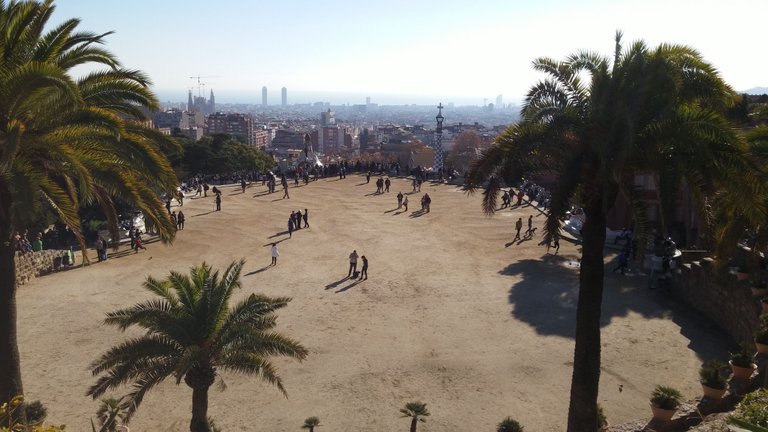
Founded as a Roman city, in the Middle Ages Barcelona became the capital of the County of Barcelona. After merging with the Kingdom of Aragon, Barcelona continued to be an important city in the Crown of Aragon as an economic and administrative centre of this Crown and the capital of the Principality of Catalonia. Barcelona has a rich cultural heritage and is today an important cultural centre and a major tourist destination. Particularly renowned are the architectural works of Antoni Gaudí and Lluís Domènech i Montaner, which have been designated UNESCO World Heritage Sites. The headquarters of the Union for the Mediterranean is located in Barcelona. The city is known for hosting the 1992 Summer Olympics as well as world-class conferences and expositions and also many international sport tournaments.

Barcelona is one of the world's leading tourist, economic, trade fair and cultural centres, and its influence in commerce, education, entertainment, media, fashion, science, and the arts all contribute to its status as one of the world's major global cities. It is a major cultural and economic centre in southwestern Europe, 24th in the world (before Zürich, after Frankfurt) and a financial centre. In 2008 it was the fourth most economically powerful city by GDP in the European Union and 35th in the world with GDP amounting to €177 billion.In 2012 Barcelona had a GDP of $170 billion; it is leading Spain in both employment rate and GDP per capita change.In 2009 the city was ranked Europe's third and one of the world's most successful as a city brand. In the same year the city was ranked Europe's fourth best city for business and fastest improving European city, with growth improved by 17% per year,and the city has been experiencing strong and renewed growth for the past three years. Since 2011 Barcelona has been a leading smart city in Europe.Barcelona is a transport hub, with the Port of Barcelona being one of Europe's principal seaports and busiest European passenger port,an international airport, Barcelona–El Prat Airport, which handles over 40 million passengers per year, an extensive motorway network, and a high-speed rail line with a link to France and the rest of Europe.

Barcelona is located on the northeast coast of the Iberian Peninsula, facing the Mediterranean Sea, on a plain approximately 5 km (3 mi) wide limited by the mountain range of Collserola, the Llobregat river to the southwest and the Besòs river to the north.This plain covers an area of 170 km2 (66 sq mi), of which 101 km2 (39.0 sq mi) are occupied by the city itself. It is 120 kilometres (75 miles) south of the Pyrenees and the Catalan border with France.
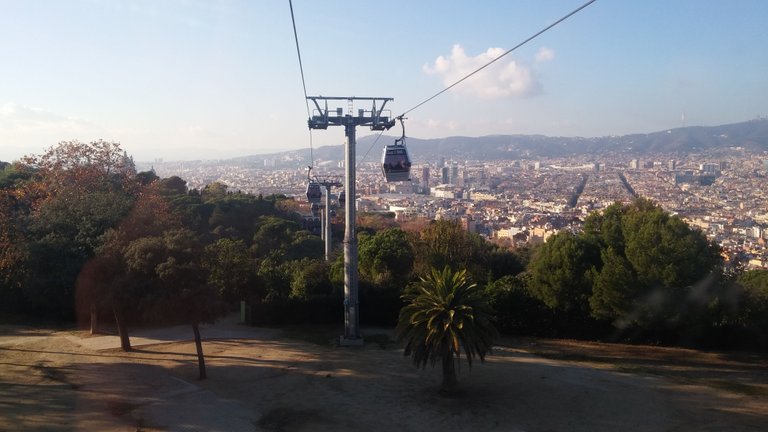
Barcelona has a humid subtropical climate. Its average annual temperature is 21.2 °C (70.2 °F) during the day and 15.1 °C (59.2 °F) at night. The average annual temperature of the sea is about 20 °C (68 °F). In the coldest month, January, the temperature typically ranges from 12 to 18 °C (54 to 64 °F) during the day, 6 to 12 °C (43 to 54 °F) at night and the average sea temperature is 13 °C (55 °F). In the warmest month, August, the typical temperature ranges from 27 to 31 °C (81 to 88 °F) during the day, about 23 °C (73 °F) at night and the average sea temperature is 26 °C (79 °F).[50] Generally, the summer or "holiday" season lasts about six months, from May to October. Two months – April and November – are transitional; sometimes the temperature exceeds 20 °C (68 °F), with an average temperature of 18–19 °C (64–66 °F) during the day and 11–13 °C (52–55 °F) at night. December, January and February are the coldest months, with average temperatures around 15 °C (59 °F) during the day and 9 °C (48 °F) at night. Large fluctuations in temperature are rare, particularly in the summer months. Because of the proximity to the warm sea, frosts are very rare in the city of Barcelona. In fact, only 1 day in the last 30 years was recorded with a temperature under the freezing mark, −1 °C (30 °F). Snow is infrequent.
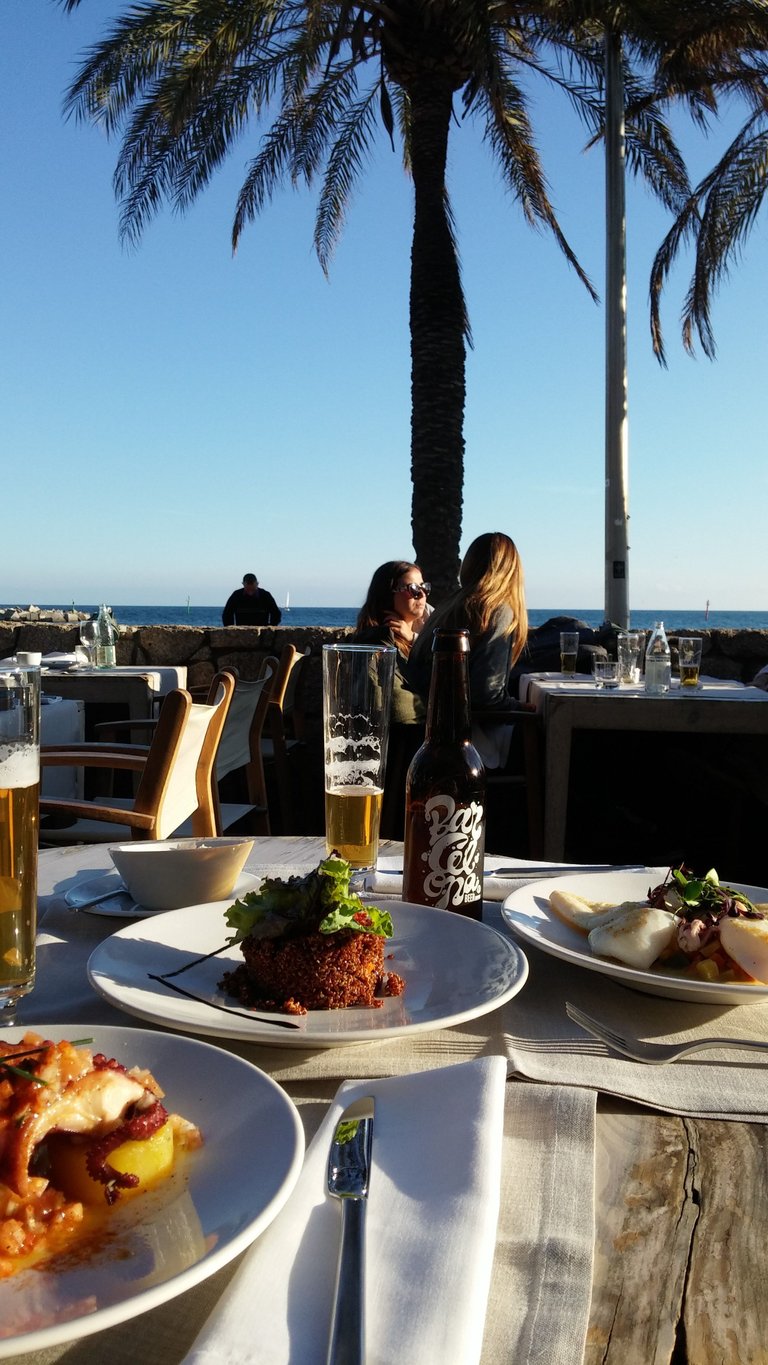
According to Barcelona's City Council, Barcelona's population as of 1 January 2016 was 1,608,746 people, on a land area of 101.4 km2 (39 sq mi). It is the main component of an administrative area of Greater Barcelona, with a population of 3,218,071 in an area of 636 square kilometres (246 square miles) (density 5,060 hab/km²). The population of the urban area was 4,223,000. It is the central nucleus of the Barcelona metropolitan area, which relies on a population of 5,083,000.
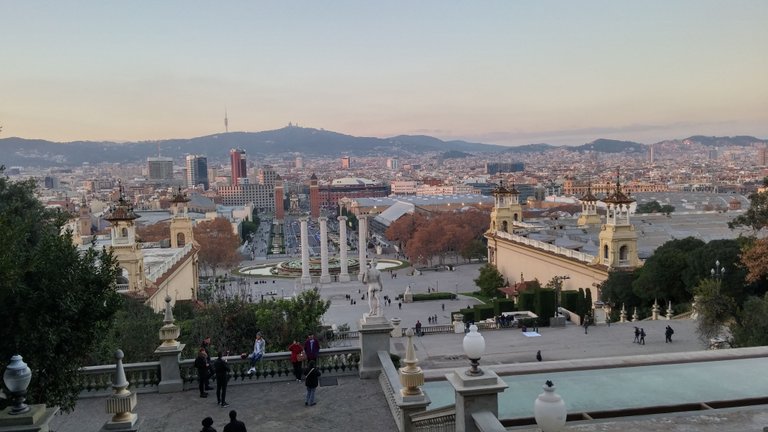
The Barcelona metropolitan area comprises over 66% of the people of Catalonia, one of the richer regions in Europe and the fourth richest region per capita in Spain, with a GDP per capita amounting to €28,400 (16% more than the EU average). The greater Barcelona metropolitan area had a GDP amounting to $177 billion (equivalent to $34,821 in per capita terms, 44% more than the EU average), making it the 4th most economically powerful city by gross GDP in the European Union, and 35th in the world in 2009. Barcelona city had a very high GDP of €80,894 per head in 2004, according to Eurostat. Furthermore, Barcelona was Europe's fourth best business city and fastest improving European city, with growth improved by 17% per year as of 2009.
